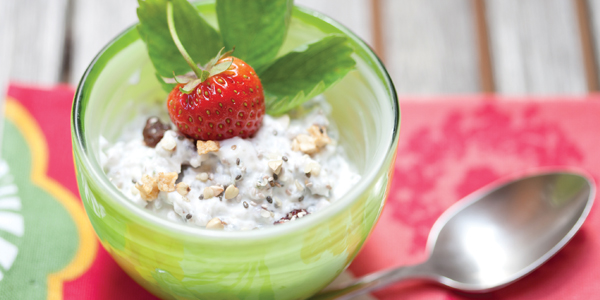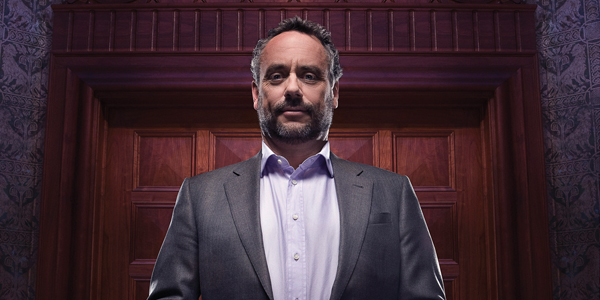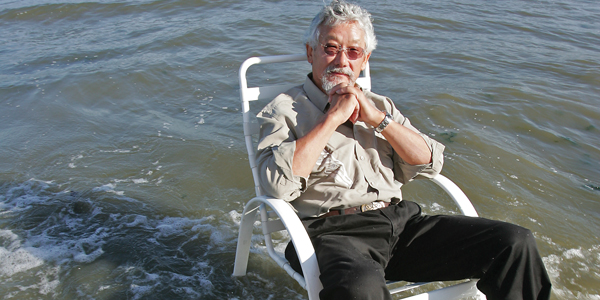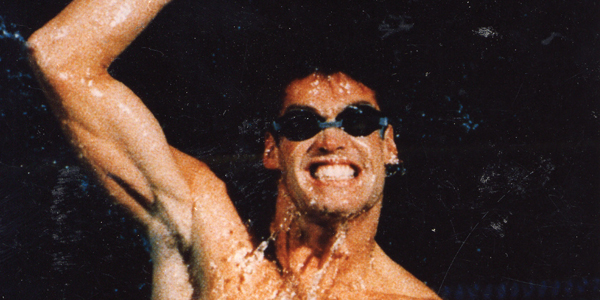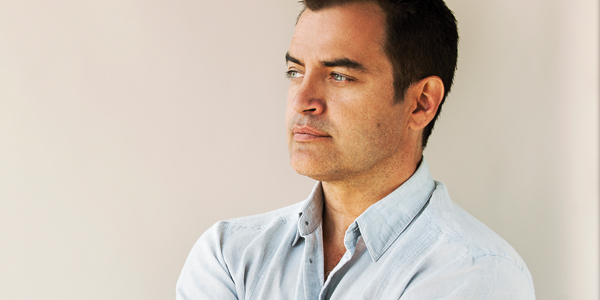 I’ve spent most of my life hitting people for a living. I’ve risen to the highest ranks in my profession. I’ve tasted fame, courted fortune, and even watched myself on the big screen in an award-winning movie based on my life. I’ve won far more than I’ve lost.
I’ve spent most of my life hitting people for a living. I’ve risen to the highest ranks in my profession. I’ve tasted fame, courted fortune, and even watched myself on the big screen in an award-winning movie based on my life. I’ve won far more than I’ve lost.
But when I lost in the boxing ring, I lost big. And it’s those losses that have shaped me into the man I am today. In losing, and losing publicly in front of millions of viewers – I realized that the most important thing in the world was not my physique, my stamina, my athletic prowess or my God-given ability to fight at the very top echelon in the sport of boxing, it was the meaningful relationships that I had created along the way.
It would be this lesson, learned from the fists of my opponent in my first world title shot that would allow me to get up, re-group and re-learn the art of boxing. My rich relationships led me to another shot at the world title, where I would eventually miss out on claiming the sport’s ultimate prize, for a second time. But this is not a story of loss, or of losing.
This is a story of winning something more important than the world super middleweight crown. It’s about realizing that winning is a process, not an end result.
Winning in life is actually measured by the quality of the relationships that you have while you’re working toward your goal, whatever that may be, and how you nurture those relationships for the rest of your life.
I’ve been boxing since I was six years old. As the youngest of five brothers, I grew up in a Kitchener, Ontario household that was ordinary in every way except my father was a boxing fanatic. He incorporated his love of the sport into every facet of our lives. We had family sparring sessions on our driveway until my dad could afford to erect a full-size boxing ring in our backyard. We ran five and ten kilometers before school for fun. My older brother, Fitz, is a renowned boxer in his own right. The name Vanderpool and boxing go hand in hand in my hometown.
As an amateur boxer I had an impressive 90-11 record, including a bronze at the Mayaguez Cup in Puerto Rico, a gold medal at the Carifta Games in the Bahamas, and a gold medal at the Tampere Tournament in Finland. I won the Ontario Welterweight Championship and went on to travel the world representing Canada. I fought the best amateurs and I won, turning pro in March 1993 at age 21. In my first fight I scored a first-round knockout; I would continue to win by knockouts for my next four fights.
A Seven-Year Winning Streak
When I lost my first professional fight, I realized very quickly I didn’t like how it felt! And so, I chose to do the things that the other top prizefighters had done to achieve their success. I chose to become a professional boxer, not an amateur fighting in the professional ranks. This meant going to training camp for the first time. I did this under the tutelage of renowned trainer John Davenport. I didn’t lose again for the next seven years.
During those years I won 23 consecutive matches and captured the North American Boxing Organization middleweight title with a 7th round TKO over George Brown in September 1997. I was the pride of Canada. My shot at the world title was guaranteed to come up within the next year. I would be legitimately fighting for the super-middleweight title in due time.
And then the phone call came. It was Bernard Hopkin’s team on the line. Hopkins, the middleweight champion and the best pound-for-pound fighter on the planet, was looking for an opponent for a bout scheduled in less than three weeks time. The boxer he was scheduled to fight had backed out due to injuries. Another fighter had already declined, claiming the fight was too soon for him to get into shape. I was his third pick.
The match was a middleweight fight, at 160 lbs. At the time, I was walking around at a muscular 182 lbs. with my usual fighting weight at 168 lbs. My manager, my lawyer – every one of my advisors told me not to fight. They counseled me to wait, convinced that the risk was too great, and they attempted to assure me that my time would come.
But it was my dream. This was my shot at becoming the best fighter in the world and I was going to take it. I believed, I was going to beat Bernard Hopkins in the ring and it was going to be on HBO for millions to watch on May 13, 2000.
Defied the Critics
I made weight, coming in at 160 lbs. The critics predicted I’d go down in the first five rounds – “no one”, they said, could go the distance with Hopkins. Oscar De La Hoya couldn’t do it. Felix Trinidad couldn’t do it.
In the end, I would beat the critics, but not Hopkins. He won by unanimous decision after the twelfth and final round. I lost, and I never wanted to box again. I was done.
I returned to my hometown and was dating a beautiful woman who would later become my wife. I had good people around me; my brother Keith had been with me every step of the way, I could always count on him. I had my family and I had my friends. I was playing golf and living the life of a retired professional athlete. I was young, healthy, and giving back to the community by helping underprivileged youth get involved and succeed in sports.
But I had still not yet learned that victory and defeat lack significance without meaningful relationships in your life.
To me, meaningful relationships are created out of mutual respect. I’ve learned that when I seek out opportunities where I can positively impact others’ lives in offering up my skills, experience, or support, I win too. I believe in fostering trust and having fun, and when the day is done, whoever I work with, talk to, or spend time with is happy that they know me and I’m happy that I know them. I learned about the value of meaningful relationships during my second shot at the world title four years after my loss to Hopkins. This time I was fighting at Caesar’s Palace, Las Vegas against Jeff Lacy. Fighters rarely get second chances like this one. My opportunity came when Everton McEwan, the legendary boxing trainer, refused to allow me to retire after my fight with Hopkins. He said to me, “Syd, I can show you how to beat Bernard Hopkins.” And, I believed him.
What Everton showed me over the next four years was not only how to reinvent my boxing game, but how to reinvent the way I looked at the sport and at life in general. Everton, in his grungy, sweat-soaked Sully’s Gym in Toronto, ignored my strengths and focused on my weaknesses. He showed me how to move laterally; it was my inability to move sideways, up down and around that cost me the fight against Hopkins. Hopkins was smart enough to stay out my range of power and then he hit me from all sides. With Everton’s (Coachy) guidance, I would learn to bob and weave, duck and be light on my feet, while still maintaining my knockout power. It took four long years to recreate my boxing style, much like Tiger Woods when he re-invented his golf swing. I trusted Coachy, and when he said, “go” it was “go”, no questions asked.
Everton taught me much more than just how to train, spar and fight with speed. He taught me how to relate to others; a gift that extends well beyond the ropes of a ring. As my boxing improved, my whole life improved along with it. Being actively engaged in meaningful relationships began my journey of living my life with purpose.
I realized that my success was not about how great a boxer I was, but how many genuinely meaningful relationships I had in my life.
The sincere interaction between people – the trust factor and the connectivity – is what made me a winner. It brought me happiness even when I was exhausted, beaten up and broke. It had also earned me another chance at a world title.
A Second Shot at the Title
I lost my second attempt at a world title to Jeff Lacy at Caesar’s Palace in October 2004. Millions saw me fight and millions saw Lacy lift the championship belt after his victory. I officially retired from professional boxing in 2005. My professional record stands at 35 wins (23 KO’s), 4 losses. I have boxed 231 rounds, with knockouts 59% of the time. I’m proud of what I’ve done and while I stood alone in the ring, taking punches and giving more than I got in return, the reality is, it took a team of dedicated people to get me there.
After working my whole life to reach to the top of my sport, after tasting victory as well as defeat, I knew I could never again walk away from the sweet science of boxing. It had taught me too much about living.
Today, I recognize I have the skills, talent and experience to help others achieve their goals whether it’s a competitive boxer in the Destiny Boxing Academy, an executive boxer in a private training session at our boxing and fitness gym in downtown Kitchener, or an underprivileged youth seeking the confidence to dream again. I understand now that it’s reciprocal; I make a difference in their lives and they make a difference in mine. As a family man with three wonderful children and in love with my wife, I realize that I’m truly blessed, and I love the life I’ve created. When someone new walks into our gym, looking for lessons, I share more than just what I know about boxing, I share what I’ve learned about life.
It’s the meaning in your relationships that makes you a winner, not the trophies that collect dust on a shelf after your victories.

